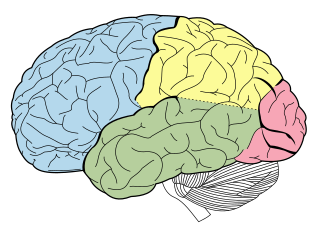A Quote by Gerald Edelman
Many cognitive psychologists see the brain as a computer. But every single brain is absolutely individual, both in its development and in the way it encounters the world.
Quote Topics
Related Quotes
Autism is a neurological disorder. It's not caused by bad parenting. It's caused by, you know, abnormal development in the brain. The emotional circuits in the brain are abnormal. And there also are differences in the white matter, which is the brain's computer cables that hook up the different brain departments.
The analogy between the mind and a computer fails for many reasons. The brain is constructed by principles that assure diversity and degeneracy. Unlike a computer, it has no replicative memory. It is historical and value driven. It forms categories by internal criteria and by constraints acting at many scales, not by means of a syntactically constructed program. The world with which the brain interacts is not unequivocally made up of classical categories.
The elegant study... is consistent with the themes of modern cognitive neuroscience . Every aspect of thought and emotion is rooted in brain structure and function, including many psychological disorders and, presumably, genius. The study confirms that the brain is a modular system comprising multiple intelligences, mostly nonverbal.
Mind mapping is a technique based on memory and creativity and comprehension and understanding, so when the student or a child uses the mind map, they are using their brain in the way their brain was designed to be used, and so the mind helps them in all learning and cognitive skills. It simply helps them in what the brain does naturally.
Everyone uses the brain at every moment, but we use it unconsciously. We let it run in the background without realizing the power we have to reshape the brain. When you begin to exercise your power, the everyday brain, which we call the baseline brain, starts to move in the direction of super brain.
Since functional brain imaging first emerged, we have learned that there aren't very many brain regions uniquely responsible for specific tasks; most complex tasks engage many if not all of the brain's major networks. So it is fairly hard to make general psychological inferences just from brain data.
One of the things cognitive science teaches us is that when people define their very identity by a worldview, or a narrative, or a mode of thought, they are unlikely to change-for the simple reason that it is physically part of their brain, and so many other aspects of their brain structure would also have to change; that change is highly unlikely.
A Russian cosmonaut and a Russian brain surgeon were once discussing Christianity. The brain surgeon was a Christian, but the cosmonaut wasn’t. ‘I have been in outer space many times,’ bragged the cosmonaut, ‘but I have never seen any angels.’ The brain surgeon stared in amazement, but then he said, ‘And I have operated on many intelligent brains, but I have never seen a single thought.
But if the brain is not like a computer, then what is it like? What kind of model can we form in regard to its functioning? I believe there's only one answer to that question, and perhaps it will disturb you: there is no model of the brain, nor will there ever be. That's because the brain, as the constructor of all models, transcends all models. The brain's uniqueness stems from the fact that nowhere in the known universe is there anything even remotely resembling it.
Faith is precisely the paradox that the single individual as the single individual is higher than the universal, is justified before it, not as inferior to it but superior - yet in such a way, please note, that it is the single individual who, after being subordinate as the single individual to the universal, now by means of the universal becomes the single individual who as the single individual is superior, that the single individual as the single individual stands in an absolute relation to the absolute.



































